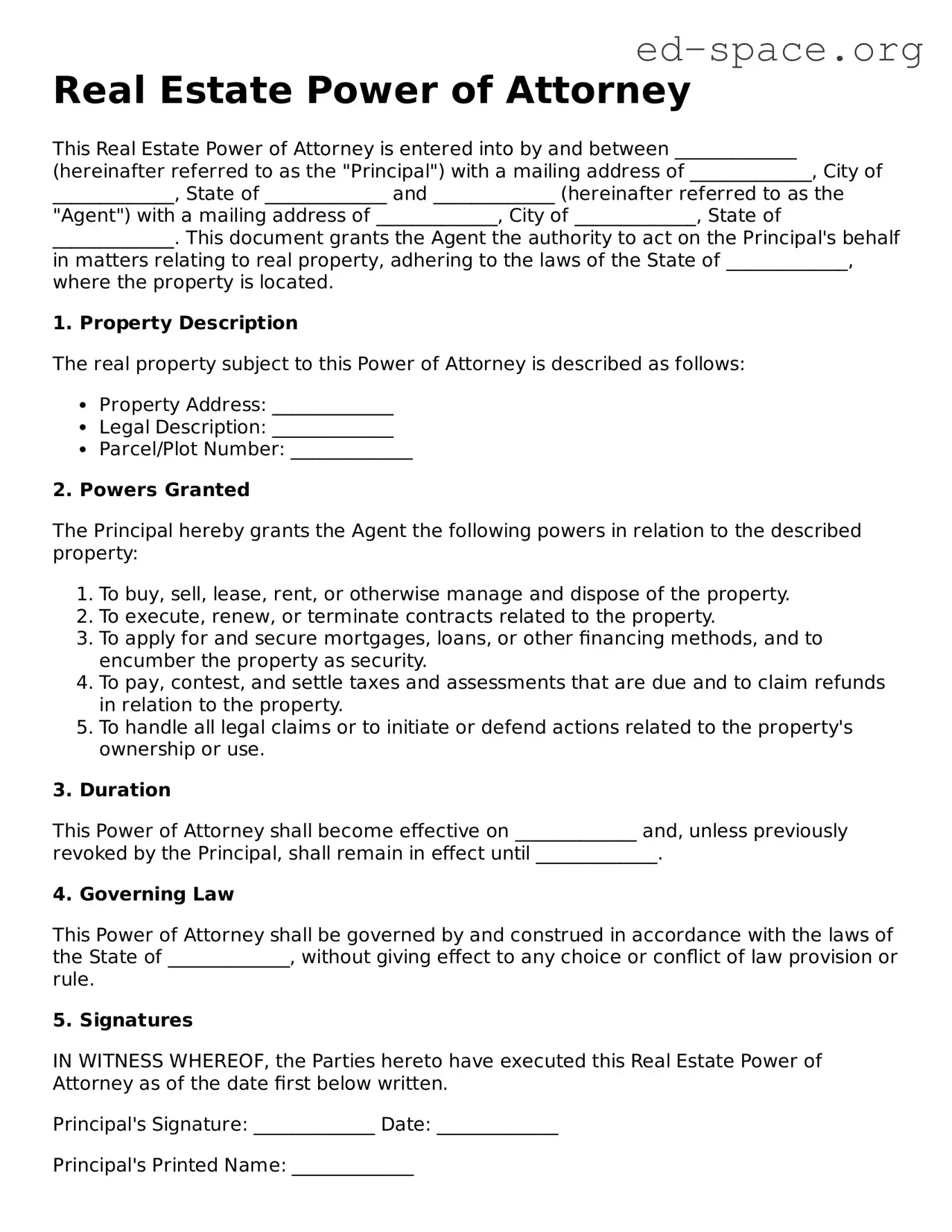Real Estate Power of Attorney
This Real Estate Power of Attorney is entered into by and between _____________ (hereinafter referred to as the "Principal") with a mailing address of _____________, City of _____________, State of _____________ and _____________ (hereinafter referred to as the "Agent") with a mailing address of _____________, City of _____________, State of _____________. This document grants the Agent the authority to act on the Principal's behalf in matters relating to real property, adhering to the laws of the State of _____________, where the property is located.
1. Property Description
The real property subject to this Power of Attorney is described as follows:
- Property Address: _____________
- Legal Description: _____________
- Parcel/Plot Number: _____________
2. Powers Granted
The Principal hereby grants the Agent the following powers in relation to the described property:
- To buy, sell, lease, rent, or otherwise manage and dispose of the property.
- To execute, renew, or terminate contracts related to the property.
- To apply for and secure mortgages, loans, or other financing methods, and to encumber the property as security.
- To pay, contest, and settle taxes and assessments that are due and to claim refunds in relation to the property.
- To handle all legal claims or to initiate or defend actions related to the property's ownership or use.
3. Duration
This Power of Attorney shall become effective on _____________ and, unless previously revoked by the Principal, shall remain in effect until _____________.
4. Governing Law
This Power of Attorney shall be governed by and construed in accordance with the laws of the State of _____________, without giving effect to any choice or conflict of law provision or rule.
5. Signatures
IN WITNESS WHEREOF, the Parties hereto have executed this Real Estate Power of Attorney as of the date first below written.
Principal's Signature: _____________ Date: _____________
Principal's Printed Name: _____________
Agent's Signature: _____________ Date: _____________
Agent's Printed Name: _____________
State of _____________
County of _____________
This document was acknowledged before me on _____________ (date) by _____________ (name of Principal) and _____________ (name of Agent).
Notary Public's Signature: _____________
Notary's Printed Name: _____________
My commission expires: _____________
